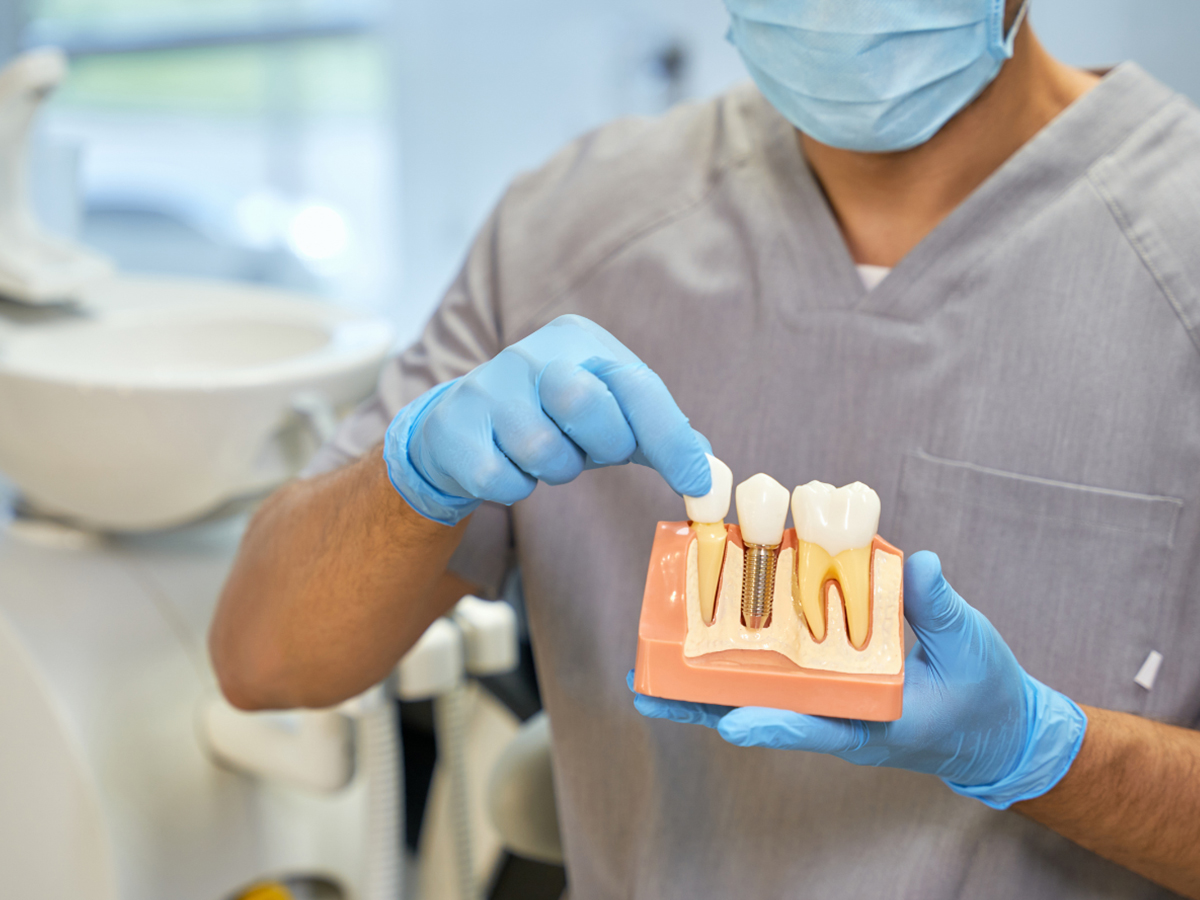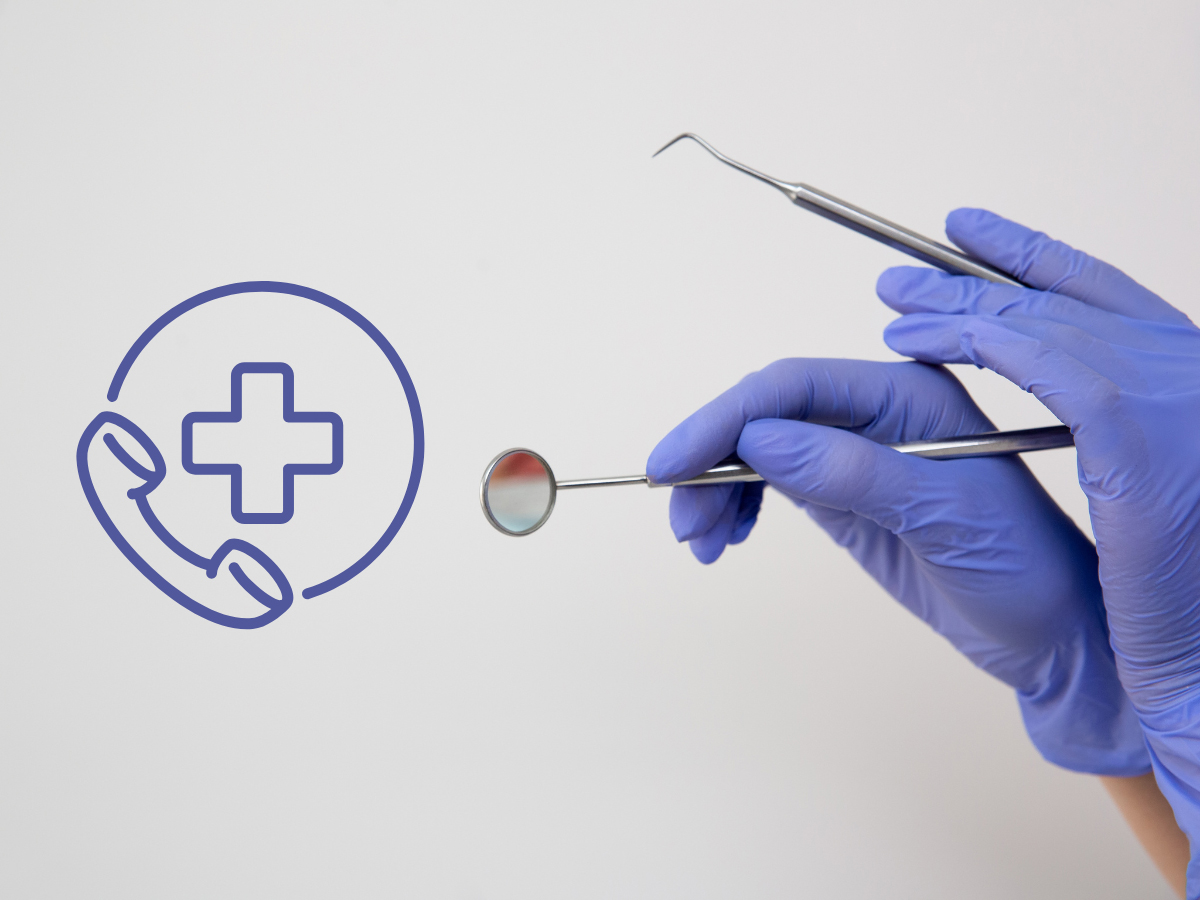Welcome to the King Street Dentistry Blog!
Stay informed, inspired, and empowered with our latest dental health tips, expert advice, and smile care insights. Whether you're looking for guidance on oral hygiene, cosmetic treatments, family dentistry, or the latest advancements in dental care, our blog is here to help you make confident, informed decisions about your oral health.
Explore our latest posts and keep your smile healthy and bright!
CDCP Dentist Cambridge: Welcome to King Street Dentistry
Sept 19, 2025 / Dentistry

Understanding how dental implants work helps patients make informed decisions about tooth replacement options.
This comprehensive guide breaks down the dental implants process into clear, manageable steps that patients can easily follow. The procedure involves several stages, each designed to ensure successful integration and long-lasting results.
What Are Dental Implants and How They Work
The Basic Structure
Dental implants consist of three main components that work together to replace missing teeth. The titanium implant post acts as an artificial tooth root, anchoring securely into the jawbone. A connecting piece called an abutment sits on top of the implant post. Finally, a custom-made crown completes the restoration, providing the visible tooth portion.
This three-part system mimics natural tooth structure effectively. The implant post provides stability similar to a natural root. Meanwhile, the crown restores both function and appearance. This design allows dental implants to feel and function like natural teeth.
How Osseointegration Works
The success of dental implants depends on a process called osseointegration. During this phase, the jawbone grows around and bonds with the titanium implant surface. This biological process typically takes several months to complete fully.
Titanium's biocompatible properties make osseointegration possible. The body accepts titanium without rejection, allowing bone cells to attach directly to the implant surface. This creates a permanent, stable foundation for the replacement tooth.
Step-by-Step Process: How Dental Implants Work
Initial Consultation and Planning
The dental implants journey begins with a comprehensive examination at King Street Dentistry in Cambridge. During this visit, the dental team evaluates bone density, gum health, and overall oral condition. Digital X-rays and 3D imaging help create a detailed treatment plan.
The consultation also includes discussing medical history and medications that might affect healing. Patients learn about the entire dental implants timeline and what to expect at each stage. This planning phase ensures the best possible outcomes for each individual case.
Tooth Extraction (If Necessary)
Some patients need tooth extraction before dental implants placement. When a damaged tooth requires removal, the extraction typically happens during a separate appointment. This allows proper healing time before implant surgery.
The extraction site needs adequate healing before implant placement. Depending on the case, this healing period may last several weeks to months. Sometimes, bone grafting occurs simultaneously with extraction to preserve jawbone volume for future dental implants.
Bone Grafting (When Required)
Not all patients have sufficient bone density for dental implants without additional support. Bone grafting procedures add volume and density to areas with inadequate bone structure. This step ensures proper implant stability and long-term success.
The grafting material can come from the patient's own bone, donor bone, or synthetic materials. After grafting, patients typically wait several months for the new bone to integrate fully. This healing period is essential before proceeding with dental implants placement.
The Surgical Placement Process for Dental Implants
Preparing for Surgery
On surgery day, patients receive local anaesthesia to ensure comfort during dental implants placement. The dental team at King Street Dentistry uses precise techniques to minimize discomfort and promote healing. Sedation options are available for anxious patients.
The surgical site is thoroughly cleaned and prepared before beginning the procedure. Sterile techniques prevent infection and promote successful healing. The entire process typically takes one to two hours, depending on the number of dental implants being placed.
Implant Placement Procedure
The surgeon creates a small opening in the gum tissue to access the jawbone. Using specialized drills, they prepare a precise socket for the dental implants. The implant post is then carefully positioned into the prepared site.
After placement, the gum tissue is sutured closed over or around the implant. This protects the dental implants during the initial healing phase. Some cases allow for immediate temporary crowns, while others require complete healing before restoration.
Initial Healing Phase
The first few weeks after dental implants surgery focus on soft tissue healing. Patients follow specific care instructions to prevent infection and promote recovery. Pain medication and antibiotics may be prescribed as needed.
During this time, patients eat soft foods and avoid disturbing the surgical site. Regular follow-up appointments monitor healing progress. The dental implants remain undisturbed while osseointegration begins.
Osseointegration: How Dental Implants Bond with Bone
The Integration Process
Osseointegration typically takes three to six months for dental implants to fully integrate with jawbone. During this period, bone cells grow around and attach to the implant surface. This process creates the strong foundation necessary for long-term success.
Patients continue regular activities while dental implants integrate, though they avoid excessive force on the implant site. Temporary replacement options help maintain appearance and function during healing. Regular check-ups ensure proper integration progress.
Factors Affecting Healing
Several factors influence how quickly dental implants integrate successfully. Good oral hygiene promotes healthy healing, while smoking can significantly delay the process. Overall health conditions like diabetes may also affect integration timing.
Following post-operative instructions carefully improves dental implants success rates. This includes taking prescribed medications, maintaining proper oral care, and attending all follow-up appointments. Patients who follow these guidelines typically experience smooth, predictable healing.
Final Restoration Phase of Dental Implants
Abutment Placement
Once dental implants have fully integrated, the next step involves placing the abutment. This connecting piece attaches to the implant post and extends through the gum tissue. The abutment serves as the foundation for the final crown.
Abutment placement is typically a minor procedure requiring only local anaesthesia. The gum tissue may need a few weeks to heal around the abutment before crown placement. This healing ensures optimal gum contours around the final restoration.
Crown Fabrication and Placement
The final step in the dental implants process involves creating and placing the custom crown. Impressions or digital scans capture the exact dimensions needed for proper fit and function. The crown is crafted to match surrounding teeth perfectly.
Crown placement completes the dental implants restoration process. The finished result looks, feels, and functions like a natural tooth. Patients can eat, speak, and smile with confidence once the process is complete.
King Street Dentistry in Cambridge provides comprehensive dental implants services from initial consultation through final restoration. The experienced team guides patients through each step, ensuring comfortable treatment and successful outcomes. For more information about dental implants or to schedule a consultation, contact the practice at 519-219-6363.
Archive













